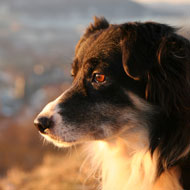
Researchers find dogs can recall experiences in a similar way to humans
Dogs can recall events from the past that are as complex as human actions, according to new research.
Published in Current Biology, the study is the first evidence of episodic-like memory of others’ actions in a non-human species, and the first report of this type of memory in dogs.
Episodic memory is referred to as the memory of an event or specific episode. However, the existence of episodic memory in non-human animals is controversial and has been investigated using different methodologies.
A fundamental feature of episodic memory is recalling after incidental encoding. This is where the subject creates new memories without knowing they are doing so and can be assessed if the recall test is unexpected.
In the study, the team used a modified version of the “Do as I do” method, which relies on dogs’ ability to imitate human actions.
First, the team trained 17 dogs to imitate human actions on command, like climb on a chair or touch the chair with paws. After the demonstration, the dogs were commanded to mimic the action with the words “do it!”
Then, to ensure the following imitation test was unexpected, the dogs were trained to “lie down” after watching their owner carrying out the action.
After this, the researchers tested whether the dogs recalled the demonstrated actions by unexpectedly giving them the command to “do it!” instead of “lie down!”. The dogs were tested at intervals of one minute and a longer duration of one hour. At both intervals, the dogs could recall the demonstrated actions. However, their memory did diminish over time.
The researchers say the same approach could be applied to other non-human species to learn how animals’ minds process their own actions and that of others around them.
"From a broad evolutionary perspective, this implies that episodic-like memory is not unique and did not evolve only in primates but is a more widespread skill in the animal kingdom," commented lead researcher Claudia Fugazza.
"We suggest that dogs may provide a good model to study the complexity of episodic-like memory in a natural setting, especially because this species has the evolutionary and developmental advantage to live in human social groups."



 The latest
The latest